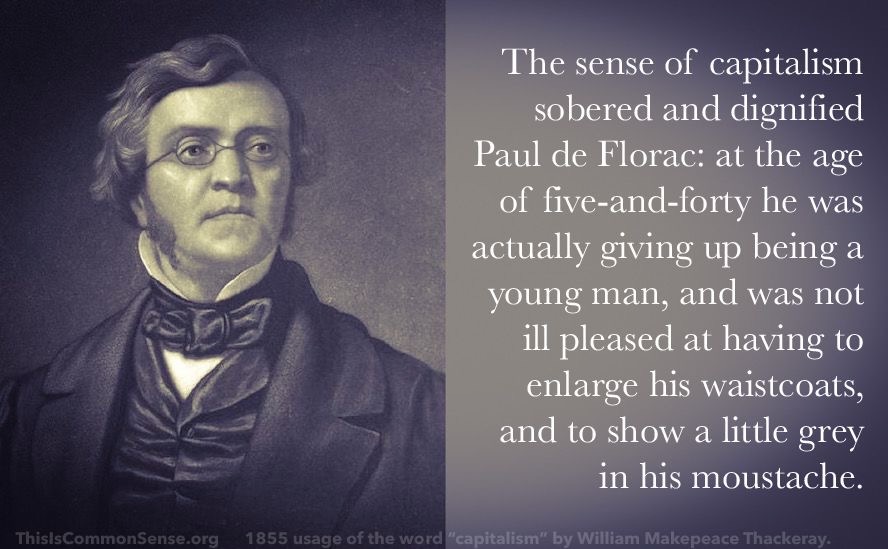The sense of capitalism sobered and dignified Paul de Florac: at the age of five-and-forty he was actually giving up being a young man, and was not ill pleased at having to enlarge his waistcoats, and to show a little grey in his moustache. His errors were forgotten: he was bien vu by the Government. He might have had the Embassy Extraordinary to Queen Pomaré; but the health of Madame la Princesse was delicate. He paid his wife visits every morning: appeared at her parties and her opera box, and was seen constantly with her in public.
William Makepeace Thackeray, The Newcomes: Memoirs of a Most Respectable Family (1854 – 1855), Chapter XLVI: “The Hotel de Florac.” Perhaps the very first use of the word “capitalism” in English literature.
Categories
William Makepeace Thackeray

1 reply on “William Makepeace Thackeray”
Here we see “capitalism” used in its original sense, simply referring to the condition of possessing capital; that sense long ago fell from fashion.
The next sense of “capitalism” was of a system favoring the interests of capitalists. This sense is not good for anything but snark, because every system that sustains capital assigns ownership of it to some party, who are ipso facto capitalists; even socialism has capitalists, as the community as a whole are considered to be rightful owners of capital.
The further senses of “capitalism” are evolved from that snarky use, and never achieved standardization. If one checks different dictionaries, one find that they don’t actually agree on a meaning. Thus, I always argue for defining the word if one is going to use it, and not using it if one is not going to define it. I believe that not using the word is the best option.